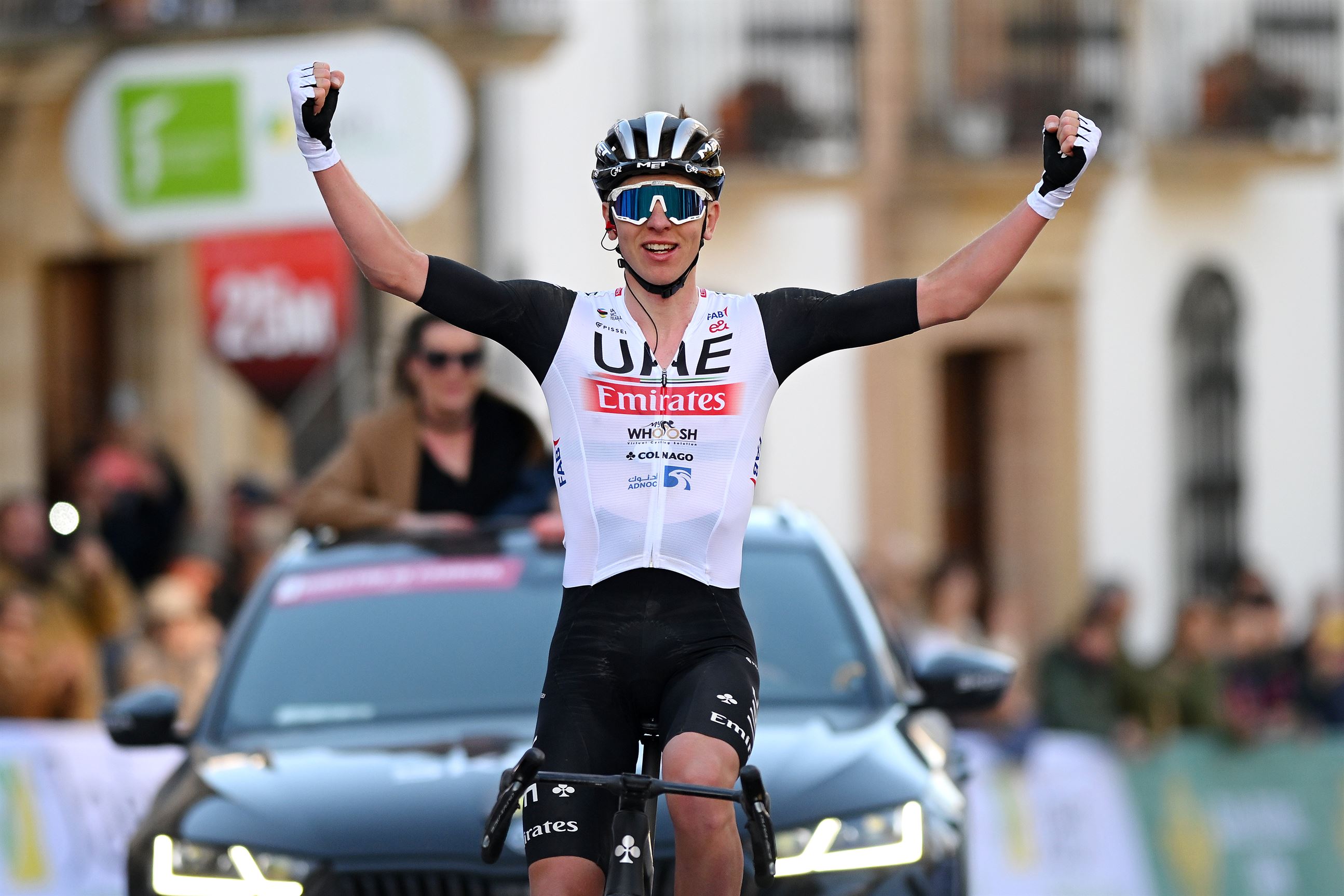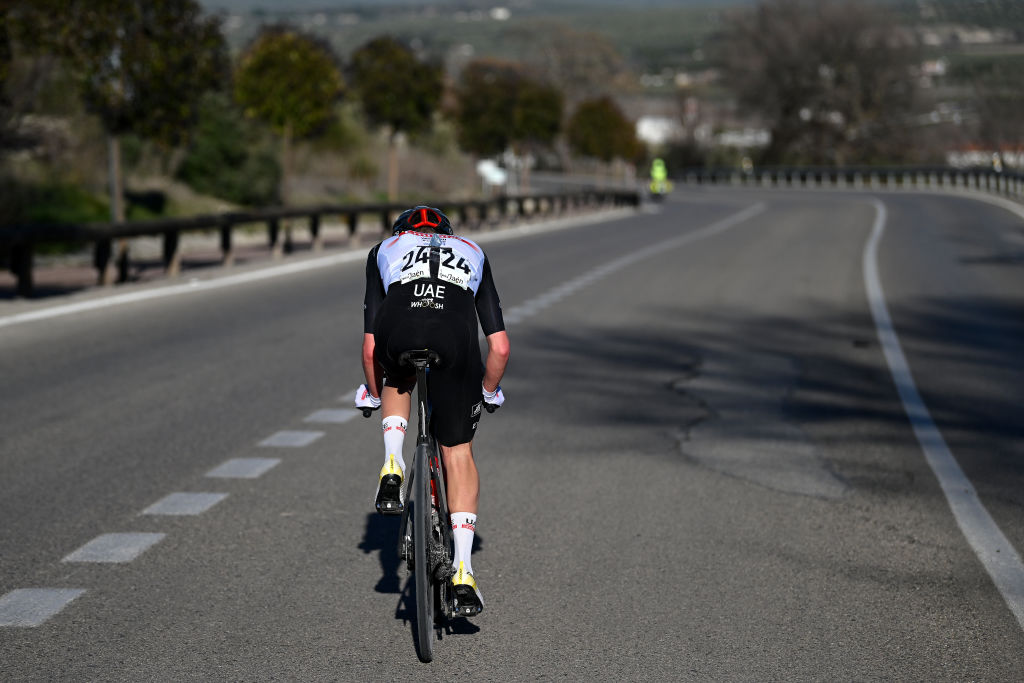
Cycling is not a sport conducive to streaks; there are too many factors at play, too many things that could go wrong or go right, too many riders competing for a single win.
In other sports, it can be different. In English football, Liverpool and Manchester City both won 17 consecutive games in the Premier League, in international rugby union, New Zealand has won 18 games in a row before, while tennis player Novak Djokovic once won 43 matches in a row.
Winning streaks are not unheard of in cycling, but they are unusual, reserved for true greats: Marianne Vos won eight races in a row in 2011, while Eddy Merckx managed five victories consecutively in 1972. It doesn't happen often, there are too many competing interests, let alone injury or illness.
On Wednesday's opening stage of the Vuelta a Andalucía, 119 riders from 17 different teams set out to try and do something. They didn't all expect to win, of course, but many would have hoped to be in the final move, or leave their mark on the race.
However, one of them is different to the others. He's able to do things that the ordinary cyclists next to him are unable to do; he can beat fate to ensure he wins multiple races in a row.
You have to wonder what his rivals thought when Tadej Pogačar attacked on the final climb of stage one - the Despiernacaballos. It was probably, simply: "Here we go again."
Just like on Monday at the Jaén Paraíso Interior, you get the sense that the UAE Team Emirates rider was just waiting for the perfect moment to rip the race to shreds, and once he had disappeared up the road, there was no getting him back.
Santiago Buitrago of Bahrain-Victorious briefly managed to hang on, but was soon dispatched, the 12km lone attack was set up and would be followed through.
The second solo win in three days for Pogačar means that the Slovenian has now won four races in a row: the last two he competed in in 2022, Tre Valli Varesine and Il Lombardia, and now the first two of his 2023 season, at Jaén and then the Ruta del Sol this week.

It was so nearly more, too, with second at the Giro dell'Emilia preceding this, but four is stunning in itself, what the term 'statement of intent' was designed for.
"I'm surprised a little bit," he said. "I knew that I'm good, but it's just a bit of a surprise that I've already won two races."
Is it surprising anymore, though? The way he is able to bend races to his will is so well known that it is more of a surprise when he fails to win a bike race that he has targeted, like at the 2022 Tour de France.
There is not a single day of this five-stage Ruta del Sol that you would heavily bet against Pogačar winning; Not a pan-flat sprinter's finish, not one fully destined for a breakaway, not even a punchy finish that one would guarantee he would be outgunned by a faster rider.
It is unlikely that he will win them all, not with so many competing interests and the cruelty of fortune's wheel, but it could happen. Even when he punctures, like at Jaén on Monday, it does not break his chances, just narrows his margin of victory.
In truth, the Slovenian has probably already won the Vuelta a Andalucía through his exploits on the opening day. He has 38 seconds on Mikel Landa, and in this form, looks pretty unbeatable.
Even if he does not keep winning every time, he will win a lot this year. At 24, he is just two victories away from 50 career wins, a remarkable achievement. To show the length of his dominance, Pogačar has won at least one stage of every stage race he has entered since the 2020 Critérium du Dauphiné. That's 29 months.
He probably won't win on Thursday, there is a lot going against him, but he might. Then where will it end? Strade Bianche? Paris-Nice? The Tour? This might be his best year yet.

